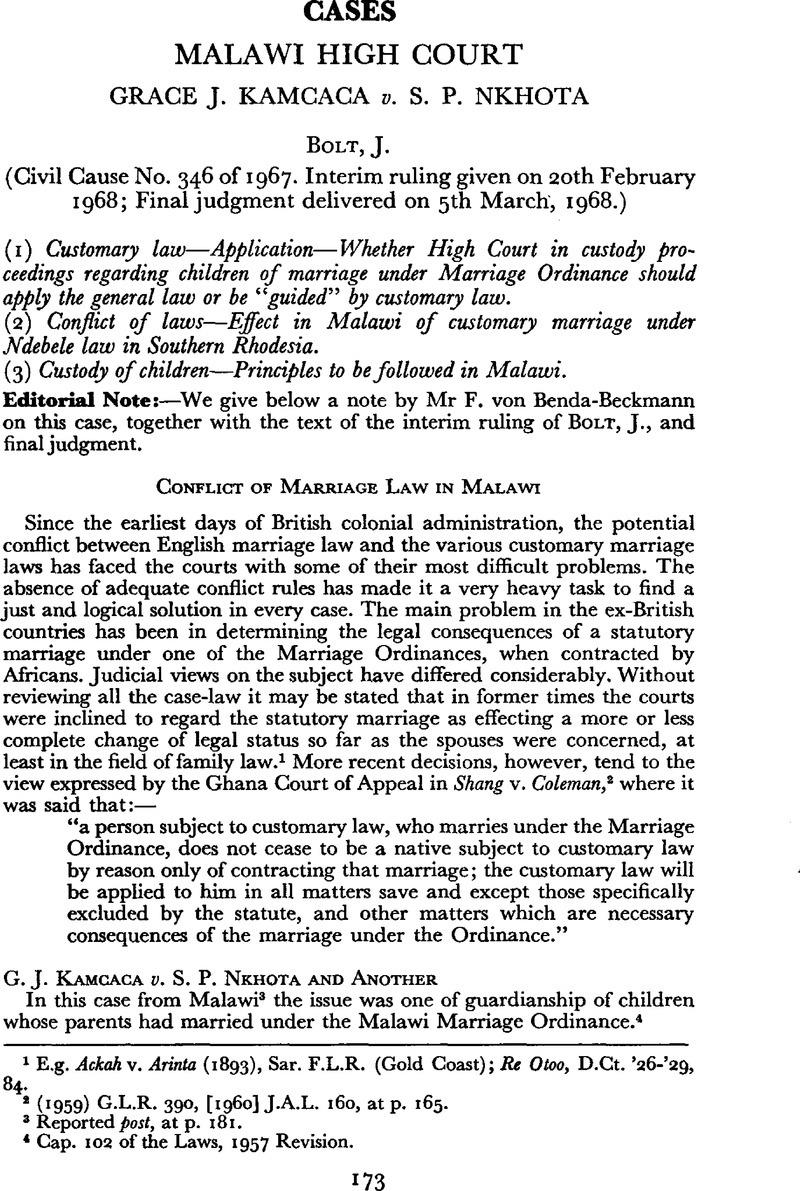Published online by Cambridge University Press: 28 July 2009

2 (1959) G.L.R. 390, [1960] J.A.L. 160, at p. 165.
3 Reported post, at p. 181.
4 Cap. 10a of the Laws, 1957 Revision.
page 174 note 1 See post, p. 178.
page 174 note 2 At p. 181.
page 174 note 3 Which provided that all courts were to be guided by native law so far as it is applicable. Learned counsel for the petitioner was, it is submitted, in error on this point.
page 174 note 4 Act No. 23 of 1966.
page 174 note 5 Cap. 174, s. 14.
page 174 note 6 Judgment, p. 188.
page 175 note 1 1915 S.R. 49; 1922 S.R. 55; 1935 S.R. 86; 1936 S.R. 171.
page 175 note 2 1936 S.R. 171.
page 175 note 3 Cap. 150 of the Laws, 1939 Revision.
page 175 note 4 Native Marriages Act, No. 23 of 1950, s. 14, now African Marriages Act, cap. 105, 1963 Revision, s. 13.
page 175 note 5 Gap. 106. Judgment, p. 186.
page 175 note 6 Judgment, p. 186.
page 176 note 1 This was confirmed in Ella Thipa v. Kidney Thipa, 5 Ny.L.R. 11. Though Morgan, Ag C. J., finally applied the customary law of custody, it is clear from his judgment that he would have applied English law, if the children had been “minors” in terms of s. 3 of the Divorce Ordinance.
page 176 note 2 Marriage Ordinance, ss. 54, 55.
page 176 note 3 I have discussed this problem with a number of Local Court Chairmen, among them Mr. Fumulani, who gave evidence on Ndebele customary law during the hearing of the case. There was a wide agreement that the relatives of a deceased husband are entitled to the children and that only the father of the woman (not the woman herself) can demand the full payment of the lobola.
page 176 note 4 In Chiduku v. Chidano, 1922 S.R. 58.
page 176 note 5 Ibid.
page 177 note 1 (1959) G.L.R. 390.